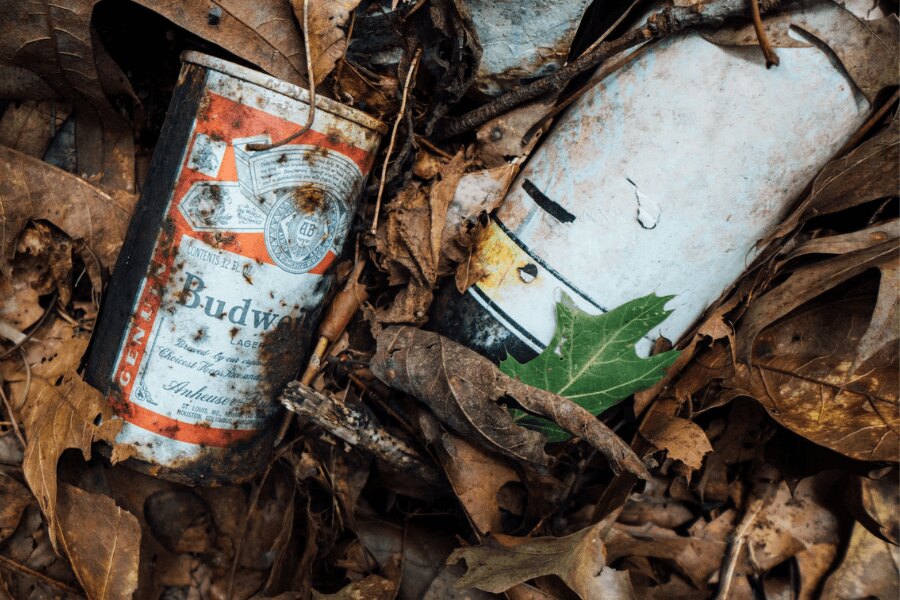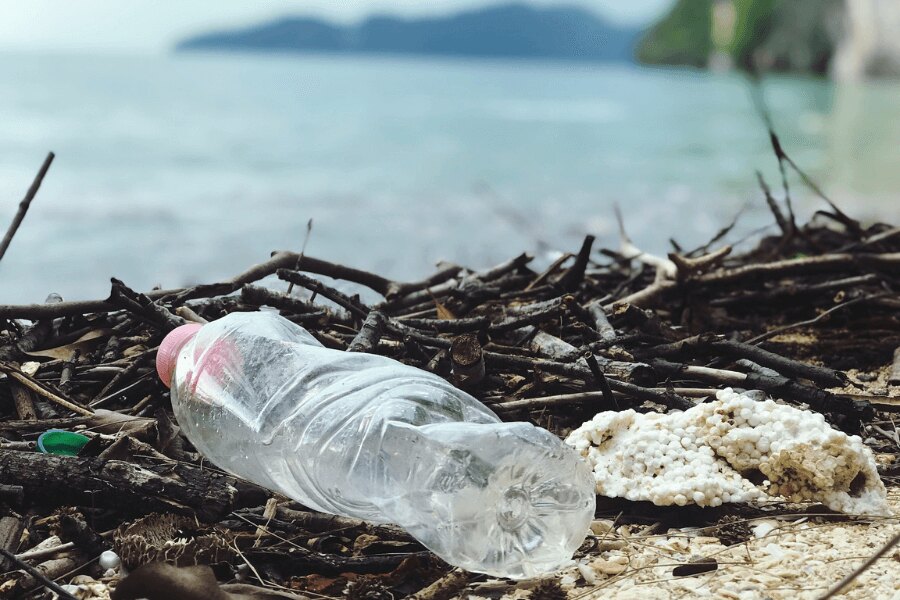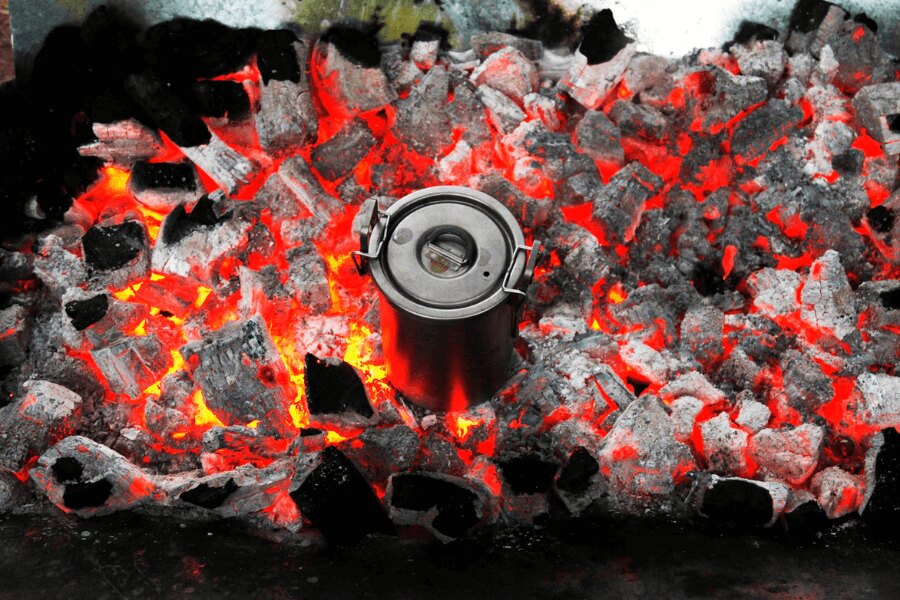7 principles of Leave No Trace
The Leave No Trace philosophy (or, more popularly, "don't be a pig") has been gaining more and more ground in recent years - and that's a very good thing for us. This trend is focused on minimising the impact of tourism, outdoor activities and human presence in nature in general on the ecosystem. If you're not sure what's right and what's wrong when being in nature, read on for 7 principles that are worth following so that future generations can enjoy the beautiful nature.

To keep nature healthy in spite of tourist raids and a many of outdoor activities, always try to follow the 7 principles of Leave No Trace.
7 principles that are worth following
The Leave No Trace approach includes a total of 7 simple and clear recommendations that will make it easier not only for nature but also for your conscience.
Principle 1: Plan and prepare well
The first principle is also one of the most important, as it helps to ensure the safety of individuals and groups on a journey of discovery or relaxation. It also seeks to minimise the impact of your trips on the natural ecosystem. Therefore, with planning and preparation, you can explore the beauty of nature safely and also be guaranteed to enjoy it.
- Familiarise yourself with the regulations and recommendations in the area you are about to visit.
- Prepare for extreme weather, hazards and emergencies.
- Plan your journey to avoid the heaviest traffic.
- Place pre-packaged food in boxes or universal packaging to reduce waste.
- Use a compass and map, avoid building mounds or putting flags on the tops of rocks.
- Move in smaller groups, divide larger groups into several smaller ones.
Principle 2: Travel and sleep on a resistant surface
Most of our actions have a big impact on nature. If you get off the road and go for a walk in the woods, you almost always trample vegetation that can still recover. However, if a few more visitors join a newly established trail, the plants and animals found there can be seriously damaged. Therefore, we recommend using trails designated for hikers or designated overnight camping areas to avoid inadvertently establishing a barren area or even soil erosion.
General rules:
- Look for campsites, don't set up new ones.
- Protect water sources, stay at least 60 metres from lakes and streams.
- Resistant surfaces include established trails, campgrounds, rocks, gravel, and dry grass or snow.
In high traffic areas:
- Use established trails and campsites.
- Walk single line in the middle of the trail, even if it is wet or muddy.
- Maintain small campsites, especially in areas lacking vegetation.
In untouched areas:
- Don't create trails and campsites.
- spread out to leave as few footprints as possible.
- Avoid places where human footprints are becoming visible.

Leave No Trace Principle: what you brought on the trip, take away.
Principle 3: Focus on proper waste disposal
A loose biscuit wrapper, an exotic fruit peel or a used handkerchief. These are not the only things that can cause a lot of damage. At best, loose objects will get a disgusted look from other visitors, at worst they will harm plants or wildlife. It is therefore extremely important to know how to deal with litter in nature.
- What you brought on the trip, take with you back. Check the campsite carefully when you leave. Take any garbage or leftover food with you.
- Take away any small rubbish you find on your travels. For larger litter you can contact the park administration or report it on the website www.ZmapujTo.cz.
- Do not burn or bury garbage near bodies of water, as pollution could occur.
- Only dispose of rubbish in designated areas.
- Bury excrement 15 to 20 centimetres deep and cover everything carefully to prevent the spread of bacteria to wildlife.
- Use biodegradable products and always wash at least 60 m away from the water source.
Principle 4: Leave everything as you found it
Hammering nails, chopping branches with an axe or carving marks into an otherwise healthy tree? All these interventions can irreversibly damage the trunk, increase susceptibility to disease and cause permanent damage to the tree. The same is true for man-made dwellings or castle ruins. Every stone has its place and should not be taken away to build a shelter or to shorten your free time.
- Protect what has already been created. Look and take pictures, but don't touch cultural and historical monuments.
- Leave rocks, plants and other natural objects as you found them.
- Do not bring non-native species into nature, i.e. species that you would not normally find in our nature.
- Do not build shelters, furniture or dig ditches.
Principle 5: Minimise the impact of fire
To make sure that a harmless bonfire does not turn into a large fire raging over several hectares, it is a good idea to follow the following rules to avoid inconvenience and a hefty fine.
- Cook on your own cooker, use a torch instead of a lantern to light the way.
- In places where fires are allowed, use already built fireplaces, metal pans or smothered dirt supported by a non-combustible layer.
- Keep the campfire as small as possible. Use only fallen branches that can be broken without tools.
- Burn the wood completely to ashes. Allow the fire to burn out completely and then scatter the ashes or use sufficient amount of water to extinguish the fire.

Cook ideally on your cooker. If you are cooking over a fire, let it burn down to embers and extinguish properly.
Principle 6: Respect wildlife
The most important way to respect nature is to keep your distance. Distance protects not only the animal, but also you. If you feel the need to pet a cute squirrel, deer or other critter, keep in mind that if the animal could, it would probably run away before you could get close. If the animal didn't run away from you, it may be sick or defending its young. In such case, you are at risk of unpleasant complications.
- Observe wildlife from a distance. Do not approach or pursue them.
- Never feed the animals. You can damage their health and disrupt their natural shyness.
- Keep food and garbage out of reach of wild animals.
- Always keep your own animals under control. In case this cannot be ensured, it is better to leave them at home.
- Avoid wild animals at times when they are vulnerable. This means during mating season, nesting season, but also in winter.
Principle 7: Be respectful to other visitors
One of the most important components of the ethics of behavior in nature is maintaining courtesy towards others. This will ensure that everyone enjoys their time in the outdoors. Excessive noise, rambunctious pets, and clutter in the neighborhood interfere with a pleasant stay outdoors.
- Respect other visitors and give them an undisturbed experience.
- Be courteous, let others walk the trails undisturbed.
- Keep your distance from other visitors.
- Do not shout or make noise. Let the sounds of nature take over.
Readers are further interested

































































































































